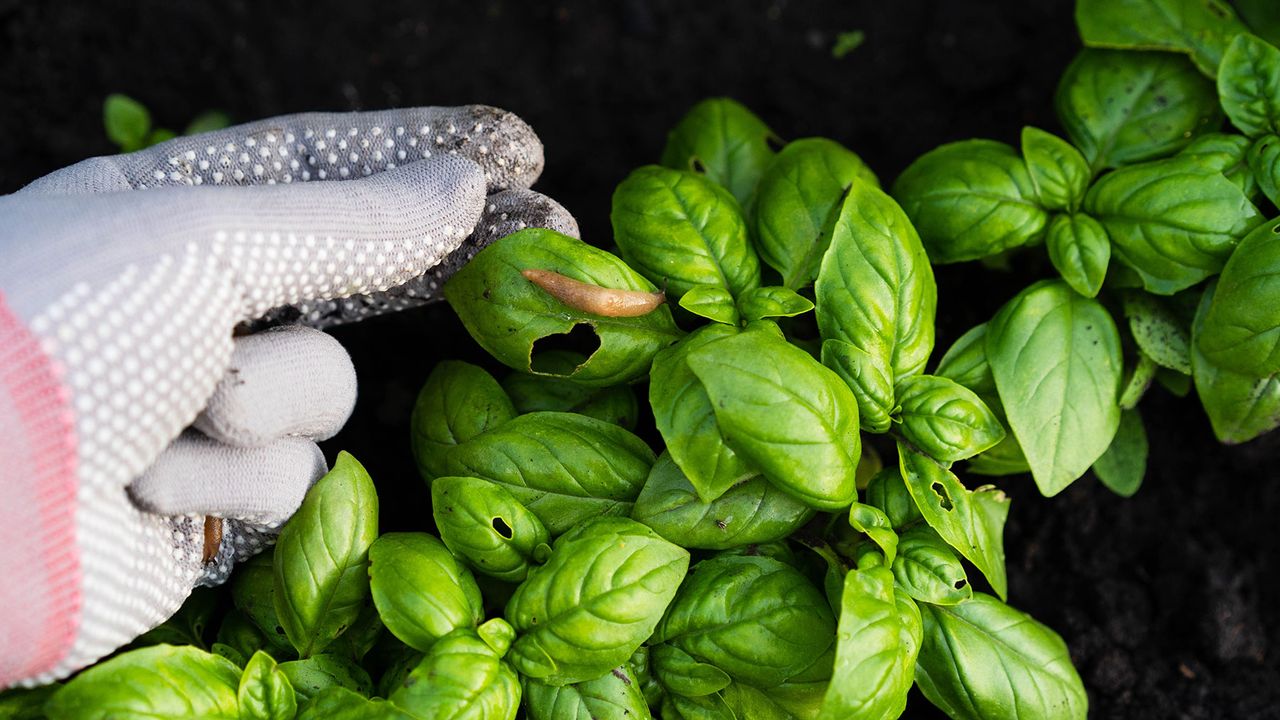Lifestyle
Banish Slugs Naturally: 5 Household Items to Protect Your Garden

With spring’s arrival, gardeners face the challenge of slugs, which can quickly devastate young plants and seedlings. These pests thrive in warm, damp conditions, making them particularly active during this season. While traditional slug control methods like beer traps and copper tape can be effective, they often harm beneficial wildlife and disrupt the garden ecosystem. Fortunately, there are five gentle and natural deterrents that can effectively keep slugs at bay without causing harm.
1. Create Barriers with Eggshells
One of the simplest methods to deter slugs is by using eggshells. By lining garden borders or surrounding vulnerable plants with upturned eggshells, you create a physical barrier that slugs are hesitant to cross. The sharp edges of the shells are uncomfortable for them, effectively keeping them away from your cherished plants.
To utilize this method, save eggshells from your cooking, crushing them into rough pieces rather than a fine powder. Larger fragments work better since they maintain their sharp edges. It is advisable to refresh the barrier every few weeks or after heavy rainfall to ensure continued effectiveness.
2. Use Gravel or Sand for Rough Terrain
Another effective strategy involves spreading gravel or horticultural sand around your plants. The rough, sharp texture creates an uncomfortable surface that slugs find challenging to traverse. This method is particularly effective when creating protective barriers around young or tender plants.
Gravel paths can also deter slugs, as they rarely venture onto such surfaces. By forming concentrated rings of horticultural grit around your most vulnerable greenery, you can provide targeted protection while using less material.
3. Mulch with Coffee Grounds
Used coffee grounds serve as another natural slug deterrent. When spread around plants, they create a barrier that slugs are unlikely to cross. Not only does the texture deter them, but the caffeine content in the grounds also plays a role in repelling these pests.
You can collect coffee grounds from your own brewing or ask local cafes for their used grounds. Apply a ring of coffee grounds approximately one to two inches wide around vulnerable plants, but avoid direct contact with the stems. Refreshing the barrier after heavy rain is essential, as it may wash the grounds into the soil, where they can also provide nitrogen benefits as they decompose.
4. Place Hair Around Plants
An unconventional but effective method involves using hair as a protective barrier. Both human hair and pet hair can deter slugs due to their texture and scent. Forming a ring of hair around individual plants or small areas creates localized protection without the need to cover large spaces.
While hair decomposes slowly, it is still necessary to replenish it occasionally to maintain its effectiveness as a barrier.
5. Plant Aromatic Herbs and Flowers
Certain aromatic plants possess natural properties that repel slugs. By incorporating these varieties into your garden design, you can create a protective environment for your more vulnerable plants. Effective slug-repelling options include alliums, mint, chives, garlic, and ferns.
Strategically planting these herbs and flowers near slug-favored varieties such as hostas and lettuce can enhance your garden’s defenses. This method not only provides year-round protection but also enriches the garden as perennial aromatic plants return each season.
Through these five natural methods, gardeners can protect their gardens from slugs without resorting to harmful chemicals. By utilizing common household items and creating a more balanced ecosystem, it is possible to enjoy a thriving garden this spring.
-

 Politics1 week ago
Politics1 week agoDallin H. Oaks Assumes Leadership of Latter-day Saints Church
-

 Sports1 week ago
Sports1 week agoSteve Kerr Supports Jonathan Kuminga After Ejection in Preseason Game
-

 Business1 week ago
Business1 week agoTyler Technologies Set to Reveal Q3 2025 Earnings on October 22
-

 Lifestyle1 week ago
Lifestyle1 week agoDua Lipa Celebrates Passing GCSE Spanish During World Tour
-

 Entertainment1 week ago
Entertainment1 week agoZoe Saldana Advocates for James Cameron’s Avatar Documentary
-

 World1 week ago
World1 week agoD’Angelo, Iconic R&B Singer, Dies at 51 After Cancer Battle
-

 Science1 week ago
Science1 week agoChicago’s Viral ‘Rat Hole’ Likely Created by Squirrel, Study Reveals
-

 Lifestyle1 week ago
Lifestyle1 week agoKelsea Ballerini Launches ‘Burn the Baggage’ Candle with Ranger Station
-

 Health1 week ago
Health1 week agoRichard Feldman Urges Ban on Menthol in Cigarettes and Vapes
-

 Health1 week ago
Health1 week agoCommunity Unites for Seventh Annual Mental Health Awareness Walk
-

 Business1 week ago
Business1 week agoMega Millions Jackpot Reaches $600 Million Ahead of Drawings
-

 Business1 week ago
Business1 week agoMLB Qualifying Offer Jumps to $22.02 Million for 2024







